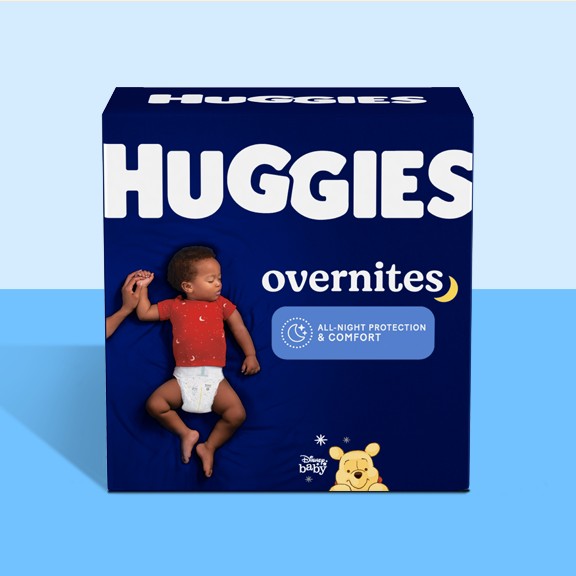Feeding and sleeping at 5 months old
Bottle-fed babies at 5 months generally still need around 5 bottles every 24 hours. If you need to increase the volume you are offering your baby, still prepare the formula as directed on the formula can. Using the correct number of powder scoops to water will help prevent your baby from becoming constipated and overweight.
Your baby should be easily rolling over. Once they can roll, there is no need to roll them back onto their back. Continue to position them on their back for sleep when lying them down and make sure the crib is empty of blankets, stuffed animals, and pillows.
If you’ve been breastfeeding, bottle-feeding, or rocking your baby to sleep, you may find they will only fall asleep when these activities are being done. If this is not a problem for either or you keep going as you are. However, if you are finding your baby is waking as they transition from one sleep cycle to another, and are looking to be held or fed back to sleep, you may want to begin lying baby down while they are drowsy but still awake. Creating a bedtime routine that is consistent and calming can help your baby learn to self-soothe themselves to sleep, and then go back to sleep on their own when they lightly awaken through the night.
Behavior at 5 months old
At 5 months they can also become very cranky when they are tired, bored, or just don’t know what they want. Your baby’s temperament will be more apparent by now. They could be calm and quiet and easy to care for or they could be more sensitive or fussy and need frequent reassurance from you to help regulate their emotions. Your baby really is a separate little individual with their own unique personality.
Developmental milestones at 5 months old
Notice your baby reaching for things that are just out of their grasp—and the look of concentration on their face. Try not to make it too easy for them! Early challenges like this promote movement and help them to learn how they can control their own body and what they need to do to make it move.
Your baby will be able to keep their head and back in alignment as you gently pull them to sit up. Rolling is another big developmental step at 5 months, when rolling back-to-front and front-to- back becomes a very clever game. Lots of play time on the floor everyday will help your baby to perfect these important skills.
Growth at 5 months old
Keeping well at 5 months old
Try not to be too fanatical about cleanliness when it comes to your home environment. There is lots of research which supports the view that a little dirt in our homes is a good thing because it helps to prime our immune systems. Adopting a clean but relaxed attitude when it comes to hygiene can be a challenge for many parents, particularly mothers. Sensible precautions go a long way towards helping adults and children stay healthy. Parents should not overlook their own vaccinations either, especially for whooping cough.
Play and interaction at 5 months old
This can be the age when babies develop a real attachment to a particular blanket or stuffed toy. These favorite transitional objects can mean a lot in the early years of childhood and they are a sign of healthy development. Having a favorite blanket is not an indicator of emotional insecurity or other future problems. Just be aware of the safety issues around your baby sleeping with something which could potentially cover their face or obstruct their breathing. Teddies, soft toys, blankets, and fabric covered toys can pose a risk to safety.
What about mom?
If you are feeling depressed, exhausted, anxious or just worried about yourself, talk to your healthcare provider. Some women may develop postpartum depression or an anxiety disorder after giving birth and there are things that can be done to help. The Edinburgh Postnatal Depression Scale is an evidenced-based tool that many providers use to help diagnose this and can offer some objective, clear guidelines on your emotional health at this time.
Your emotions You may find you’re on more of an even keel now. The early months of exhaustion have hopefully lessened, and you have found some balance and predictability in your life. This does not happen overnight. Day by day, you will find that caring for your baby has become a little easier and you will be feeling more confident and comfortable with caring for them.
There can be a lot of anxiety and concern in the early months; worry about feeding, sleep, health and “doing the right thing” can all have a negative impact on the enjoyment of caring for our babies. But by 5 months you’ll find much of this early stress eases, freeing up your energy for other things.
Your sleep needs Many babies still need at least one feed overnight at 5 months. If your friends look fabulous because their babies are sleeping through the night, don’t despair if you don’t yet share their happiness. Your time will come—commonly after 6 months when most babies sleep for a longer—to have an uninterrupted period overnight. If you are still finding you need a little mini-nap in the afternoons, avoid feeling there is something wrong with you. Just having some quiet time for half an hour or so can be enough to recharge and get through the late afternoon and evening.
Your relationships Speak with your obstetrician or midwife about contraception if you haven’t already—unless of course you are planning another baby soon. Your fertility may be back to normal, especially if you are not breastfeeding. The general recommendation is to have at least 12 months between pregnancies to allow for full recovery and return of all body systems to their normal state.
Try to connect with friends and family you have not seen since the baby was born. A phone call, text, or email only takes a short time but can be enough to help you feel you are back in touch with the adult world.
The information of this article has been reviewed by nursing experts of the Association of Women’s Health, Obstetric, & Neonatal Nurses (AWHONN). The content should not substitute medical advice from your personal healthcare provider. Please consult your healthcare provider for recommendations/diagnosis or treatment. For more advice from AWHONN nurses, visit Healthy Mom&Baby at health4mom.org.










